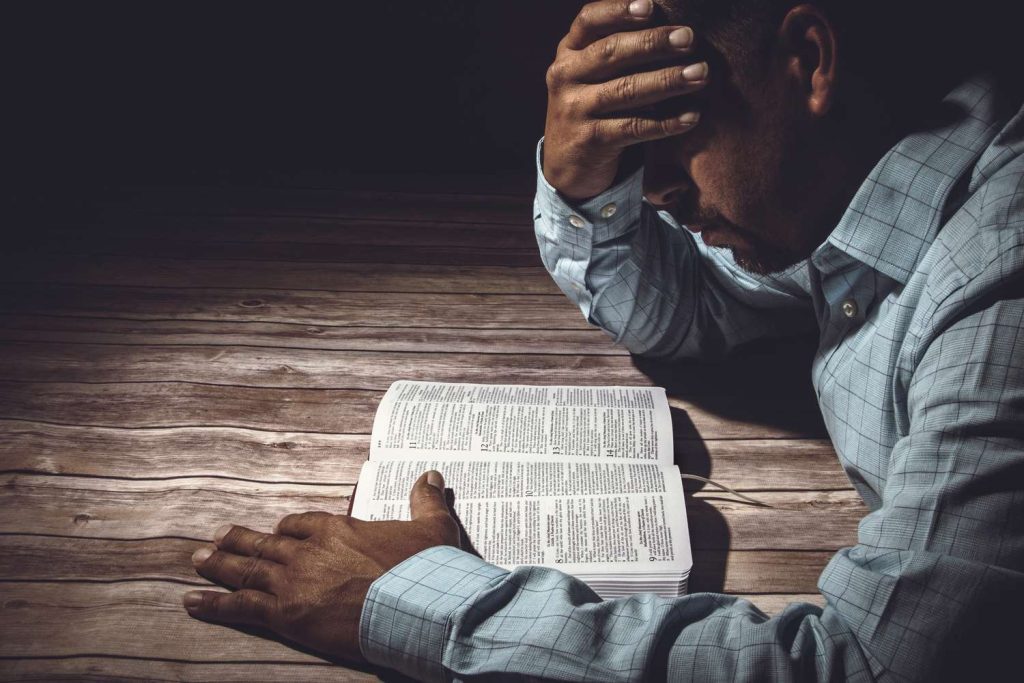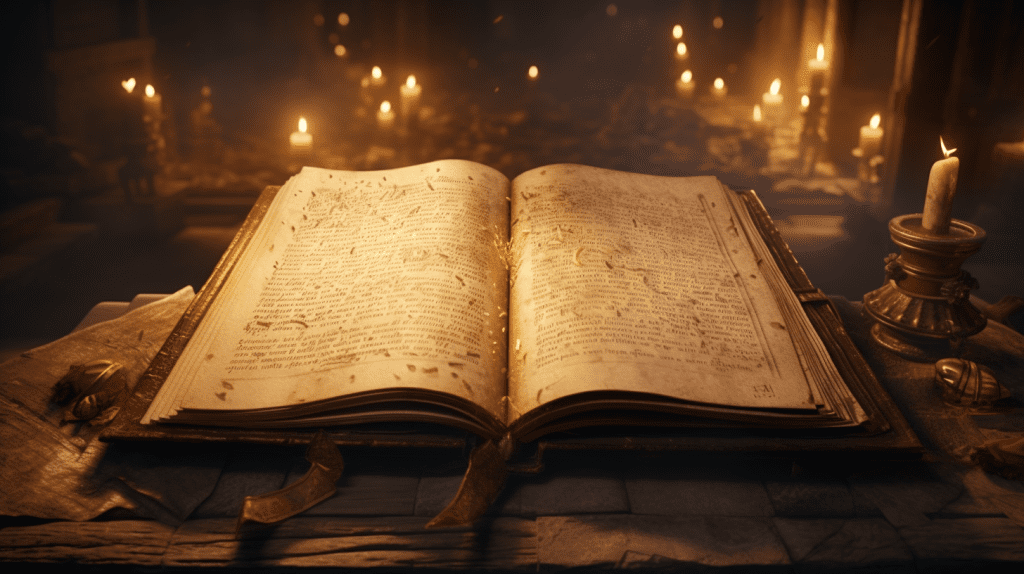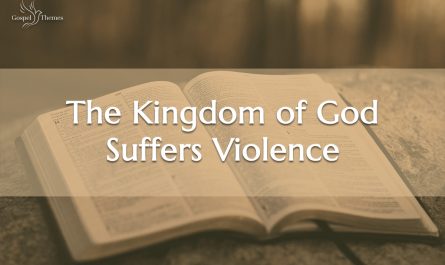The Bible, as a Holy Book, contains sacred scriptures that guide believers down a moral and religious path. So why stay away from the Book of Enoch? This article will explain the controversy behind these verses and their meaning. Continue reading to discover the biblical and spiritual meaning of the Book of Enoch.

Why Stay Away From the Book of Enoch Biblical Meaning
Used to pave a moral pathway for Christian believers, the Bible is compiled of many texts thought to be inspired by God himself. Even though there have been various scriptures found containing wisdom, not all of them have been deemed canonical.
The divinity of these verses is thoroughly reviewed and decided on by authoritative religious figures. This way, the religion is protected from misinformation and misinterpretation from the readers. While some branches of Christianity accept specific books as canonical, others deny them. One example is the Book of Enoch, often referenced as 1 Enoch.
This ancient religious text was first thought to be written by Enoch, the ancestor of Noah. However, scholars argue that it dates back between the third century BC and the first century AD, long after his death. This is due to the discovery at Qumran, Cave 11, where the Aramaic version of the text was found.
What started out as descriptions of demons, the Giant Flood, and the reign of the Messiah soon became an object of superstition among many religious scholars. While some view Enoch as a saint and his book as inspired by God, others focus on the inconsistencies.
What does the Bible say about the Book of Enoch?
To better understand the distrust in the Book of Enoch, several elements play an important role. Most people tend to stay away from it because:
- It isn’t canonical
- Is subjected to scholarly superstition
- It’s subjected to moral controversies
- It may be influenced by the New Testament
The Book of Enoch isn’t canonical
The first reason these verses cause mistrust is because they haven’t been canonized by the church. Therefore, the Book of Enoch can only be found in the Ethiopic Bible since it’s been denied by the Catholic and Eastern Orthodox church. For this reason, it isn’t seen as inspired by God, and many people question its authenticity.
Scholarly superstition
The second reason for the mistrust is the numerous scholarly superstitions. One of the main arguments religious scholars have is about who wrote the book and when.
As mentioned, the Aramaic version of the Book of Enoch was found in Qumran, alongside other uncanonized scriptures. This led to further investigation of the text’s origin. While it was thought that Enoch wrote the scripture at first, it was later concluded that it dates back to after he passed.
Since it was written 3000 to 4000 years after Enoch’s time, both the author and the timeline of the verses are inconsistent. The oldest parts of the text can be traced back to 300 BC, while the newest ones are from 100 AD. So, whoever wrote the verses took an abnormal amount of time to compile them.
Moral controversies
As already mentioned, the Bible is supposed to act as a guide to readers for moral and ethical standards. The Book of Enoch is thought to contain some controversial moral questions forced by the unknown writers.
The first ethical discussion that is highly controversial is found in the first section of the book, known as the Book of Watchers. It’s made of 36 chapters and elaborates on the theme of priestly marriage.
This topic has been controversial since 300 BC and has caused havoc amongst believers. In these verses, the authors suggest that priests should marry the virgin daughter of other priests. By doing so, they were able to keep their profession and field clean.
The second controversial subject found in this chapter is the theme of the watchers, also known as fallen angels, that have come down amongst humans. It’s said that they took kindly to the women on Earth and set out to conquer them. Their hiatus resulted in the birth of giants, which later wreaked chaos.
When compared to the verses in Genesis 6.1, there’s a very noticeable similarity in how they’ve been written.
Interference with the New Testament
Lastly, there have been multiple instances where the influence of the New Testament has been noted in the Book of Enoch. It was first thought that the verses allude to the themes explained in the New Testament.
But it’s more obvious that the writings were inspired by certain sections discussing the end of times, the sons of God, and the Messiah.

Bible verses referencing the Book of Enoch
Even though the Book of Enoch isn’t canonically accepted, there are several Bible references that allude to his existence. Since the scripture correlates to both the Old and New Testament, we’ll go over each separately.
Enoch in the Old Testament
Enoch is a patriarch from the Antediluvian period and a predecessor of Noah. He is first mentioned in the Bible in the verses of Genesis 5:18. Here, Enoch is depicted as a descendant of Adam and the son of Jared. With a lifespan of 365 years, it’s noticeable that he lived longer than the other men mentioned in his family tree.
Furthermore, while the others were said to have died, there is no such mention in the verses referencing Enoch. Instead, it’s said that he walked with God and that God took him away. This later led to theories that Enoch was one of the two witnesses that stood by God in Revelations.
Enoch in the New Testament
As for the New Testament, several important verses mention Enoch. The first instance can be seen in Luke 3:37. But he’s only briefly mentioned as Jesus’ ancestors are mentioned.
Next, he is referenced in Hebrews 11:5. In these verses, it’s once again mentioned that Enoch didn’t pass like any other human. Instead, his faith and devotion to the Lord led to his being taken away by God. This passage also highlights that people be rewarded with God’s biggest gift of eternal life only through faith.
Lastly, he is mentioned in Jude 1:14-15. In this passage, Enoch is mentioned as the seventh of Adam, once again alluding to his heritage. These may be the first actual verses that portray his prophetic ability to warn the people of Judgement Day. The text implies that God and his holy ones will come down to Earth and pass the final judgment on the sinners who deny his existence.
The Book of Enoch Spiritual Meaning and Symbolism
After discovering why the Book of Enoch is a controversial scripture, you should also be aware of its spiritual meaning and influence. Besides the biblical meaning, these verses are also used in demonology and theosophy. To better understand the symbolism, it’s best to review where these beliefs came from.

The Book of Enoch in Demonology
As already mentioned, the Book of Enoch gives a detailed description of the fallen angels known as “sons of God” or “watchers”. Even though the verses clearly state that these beings were once viewed as holy beings, the text mostly focuses on their rebellion against God. Furthermore, these explanations give insight into twenty leading figures. Some of them are:
- Samyaza
- Azazel
- Baraqel
- Penemue
- Chazaqiel
The primary reason why these watchers descended upon Earth was to marry and give children to human women. But during the process, they’re also thought to have given people sacred knowledge. Each of the fallen angels was associated with a specific forbidden mastery.
Samyaza
One of the main watchers was the fallen angel Samyaza. His name can be found in many different variants, such as Shemyaza, Shemhazai, Semiaza, or Shamazya. Some scholars believe that his name means “he sees the name” or “the name has seen”. Others lean towards the Semitic etymology, which alludes to “gazes from heavens” or “gazes to heavens”.
In the Book of Enoch, it’s said that he led the other fallen angels in their descent to Earth. He is thought to have borne two demigod children in the form of giants, known as Ohya and Hahyah. In the end, he and the other evil watchers were damned and punished by God.
Azazel
The second most important watcher is known as Azazel. He is closely related to the scapegoat rite because his name alludes to the place where scapegoats bear the sins of Jews. Furthermore, in the Book of Enoch, he is also depicted as one of the leading fallen angels.
While his primary goal was to impregnate women, he also gave the people several forbidden skills. For men, he taught them the art of warfare and crafting swords, knives, and shields. On the other hand, the women were taught the art of deception. This was done through bodily ornamentation, like dying one’s hair and applying paint to the face.
Furthermore, Azazel gave the people knowledge of witchcraft. Doing so further corrupted their faith in God and led them to impurity. Ultimately, he was punished by the archangel Raphael and sent to await Judgement Day in darkness.
Baraqel
Baraqiel, also spelt as Baraqel, was the ninth of the twenty leading fallen angels. His name refers to “lightning of God” and is closely related to astrology.
In the Book of Enoch, it’s said that he gave people the skills to understand and study the positions of celestial objects. Since this is a divination practice, it’s often used to gather knowledge about terrestrial events and human affairs.
Penemue
In the Book of Enoch, Penemue is the watcher who gave people the ability to read and write. By giving people the power to understand writing, they can get greedy for power and stray from the path of the Lord.
Chazaqiel
Lastly, Chazaqiel is the eighth leading watcher and can be found spelt as Êzêqêêl. The two translations of his name are “shooting star of God” and “cloud of God”.
In correlation, he was thought to teach the people meteorology and the knowledge of clouds. With this skill, they could predict the weather and prepare beforehand.
You Might Be Interested: Why Stay Away From the Book of Enoch
Frequently Asked Questions
What are the 5 books of the Book of Enoch?
The Book of Enoch itself consists of five other books. They’re known as:
- Book of Watchers
- Book of Parables
- Astronomy Book
- Book of Dream and Vision
- The Epistle of Enoch
What does the Book of Enoch say about fallen angels?
The fallen angels in the Book of Enoch are said to have given people sacred knowledge they were not yet ready for. Furthermore, their sexual acts with the mortal women led to the birth of giants known as Nephilim.
The evil that these beings brought upon Earth are also thought to be the reason behind the Great Flood, meant to eradicate them.
Who was the leader of the fallen angels in the Book of Enoch?
The leader of the fallen angels in the Book of Enoch is said to be Samyaza or Shemihazah. However, as the verses progress, the watcher Azazel is given more meaning.
Conclusion
So why stay away from the Book of Enoch? Even though these verses are thought to contain tons of symbolism and mystical knowledge, they should not be fully trusted. Besides the various moral controversies and scholarly superstition, almost every Christian church has denied its holiness. If you decide to read it, rely on your faith in God and let him guide you with his divine wisdom.

 by
by 

